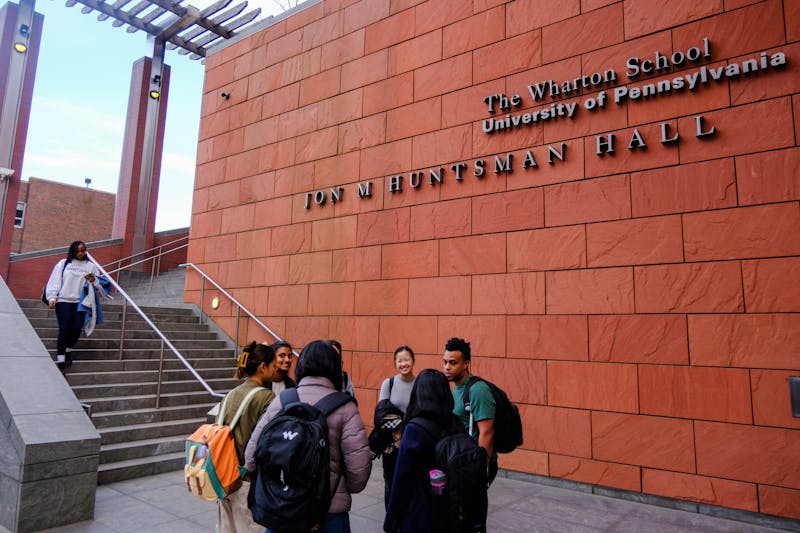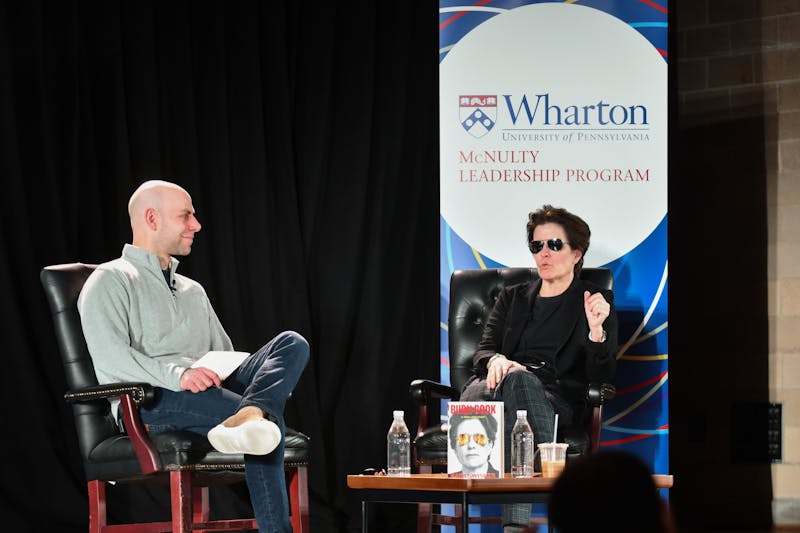
Chip Bergh, the former president and CEO of Levi Strauss & Co., spoke at a March 28 event hosted by Penn Fashion Week in collaboration with the Baker Retailing Center.
The event, which was moderated by professor of marketing Cait Lamberton and took place in Steinberg Dietrich Hall, was open to undergraduate and graduate students and had approximately 100 attendees. Bergh discussed his strategic vision and the company's values, emphasizing the importance of appealing to customers.
Bergh previously worked at Procter & Gamble, a manufacturer and marketer of consumer goods. He reflected on an experience confronting his boss at Procter & Gamble when data for Folgers — a company that was proposed to merge with Procter & Gamble — led Bergh to propose terminating the product rather than expanding it.
Bergh advised “not [to] be afraid to take a stand on important issues. ... If data is in your favor, you’re going to win.”
He also emphasized on the importance of listening to the customer, drawing from the role he played in creating and launching Swiffer in 1999. He said that when he inherited the product it was shaped for the consumer 40 years ago, and he worked towards transforming it to meet the needs of current consumers.
Bergh described his last major task at Procter & Gamble — after the company acquired Gillette in 2005 — as leading its global business.
He then transitioned to becoming CEO of Levi’s, where he sought to use his platform to take bold social stances.
Despite having no prior experience in apparel, Bergh said that he decided to join Levi's because he noticed that the brand, which he grew up with and considered iconic, had lost a whole generation of customers. He said that he sought to “put the brand back at the center of culture, connect the brand with young customers again, and make the brand cool.”
He said that one of his first initiatives was interviewing 60 employees at the company, who told him that Levi’s values drove employees to join and stay at the company, even when it was underperforming. This included donating a percentage of earnings to an orphanage, citing Levi Strauss’s belief that business existed to do more than profit shareholders.
Bergh said that his other initiatives include the purchasing of naming rights for Levi’s Stadium — the San Francisco 49ers' football stadium — to increase marketing and committing to stances such as supporting immigration reform through DACA and requesting consumers not bring guns into Levi’s stores in 2016.
Bergh suggested that listeners should use historical lessons as a guide for future business decisions.
“When you’re dealing with a challenge in business, go back to history, what worked in the past and take a look at that," he said. "Then just think about how to make the brand relevant in the future.”
During the Q&A, audience members asked questions about how Levi’s retains its brand image globally. Bergh stressed on the importance of leveraging Levi's global scale while remaining relevant on a local basis.
Engineering and Wharton first year Saanvi Mehra said that she attended the event because she enjoys events held by the Baker Retailing Center and wanted to get insights from someone integral to a brand like Levi’s.
She described her favorite part as the Q&A session, and said that her biggest learning takeaway from Bergh’s talk was “striking a balance between fast fashion and being trendy, while having an iconic brand like Levi’s.”
In the future, Mehra said that she would like to see executives from fast fashion companies visit Penn.
College juniors Jessica Bobman and Alina Ahmed, the co-presidents of Penn Fashion Week, told The Daily Pennsylvanian that they decided to bring Chip Bergh because of his focus on sustainability and brand management, which they both find to be “hot topics.”
Ahmad particularly highlighted Bergh's focus on adapting to limitations, saying that "his take on how being able to work with any constraint actually makes a better product and always ends up with a more successful company [is] a really interesting take.”
The Daily Pennsylvanian is an independent, student-run newspaper. Please consider making a donation to support the coverage that shapes the University. Your generosity ensures a future of strong journalism at Penn.
Donate












